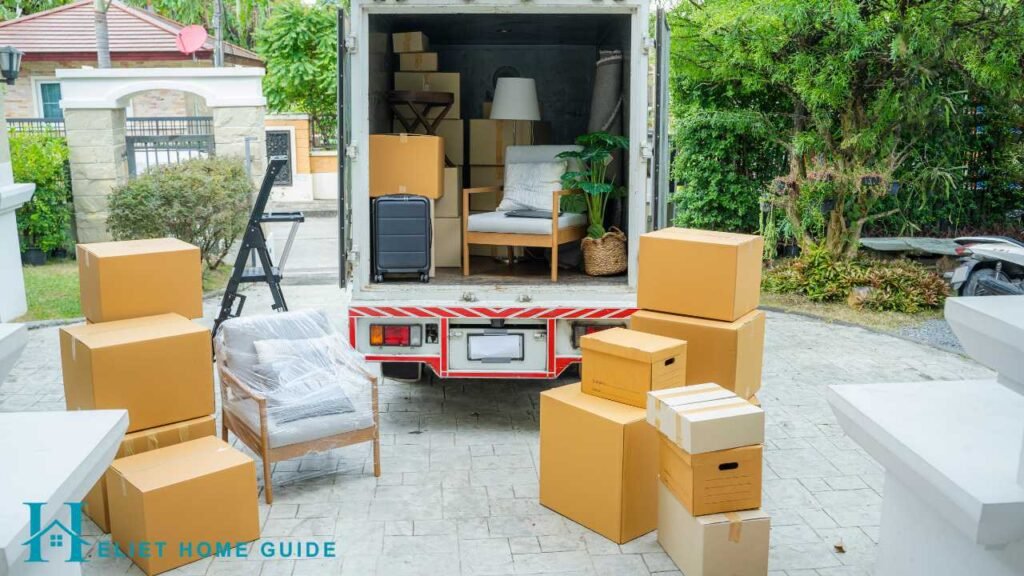When thinking about buying a home, it’s important to consider both the emotional and financial side of things. Owning a place feels amazing, but it’s a big decision that requires careful thought. Many people believe buying is better than renting, but that’s not always true for everyone. Before jumping into the process, take some time to figure out if it’s the right decision for you. The best idea is to look at your long-term goals and assess your situation. Do you see yourself staying in one place for years? Can you afford the costs beyond just the purchase price? It’s all about doing the math and making sure the numbers add up. If you’re not sure, take a step back, evaluate your needs, and figure out if buying a home makes sense at this stage of your life. One crucial step is evaluating a neighborhood before buying.
“Owning a home is not just an investment, it’s an anchor for your dreams.”
Renting vs. Buying: Which One Suits You Best?
Choosing between renting and buying is a major life decision, and both come with their own advantages. If you want stability and a long-term investment, buying might be the right choice. However, if flexibility and lower upfront costs matter more to you, renting could be a better fit. Each person’s situation is unique, so understanding the benefits of having your own home versus the freedom of renting can help you make a smart choice.

| Factor | Renting | Buying |
| Upfront Costs | Security deposit | Down payment + closing costs |
| Flexibility | Easier to move | Requires long-term commitment |
| Maintenance | Handled by landlord | Homeowner is responsible |
| Investment | No return on rent | Home equity builds wealth |
| Stability | Lease renewals | Permanent residence |
| Monthly Payments | Rent may increase | Fixed mortgage possible |
“Renting gives you freedom, buying gives you security – choose what aligns with your goals.”
Key Advantages of Renting a Home
- Renting saves time and effort since finding a place to rent is often quicker than deciding to buy a home.
- Tenants have less responsibility because landlords handle damage from everyday wear and tear, reducing stress.
- Personal flexibility is a major advantage, as it’s easier and less expensive to break a lease than to exit a mortgage.
- From a financial perspective, renters only pay a deposit instead of a substantial down payment, keeping their assets liquid and accessible.

“Sometimes, the key to financial freedom isn’t in owning a home, but in choosing what suits your lifestyle.”
Top Reasons Why Buying a Home is a Smart Move
Owning a home is a long-term investment that can increase in value over time, unlike rent, which is simply paid and lost each month. With a mortgage, you can benefit from taxes since mortgage interest is tax deductible, which helps in lowering payments. A fixed-rate mortgage brings stability, ensuring your payments don’t rise unexpectedly, whereas rent can increase each year. Plus, buying gives you design flexibility, allowing you to remodel, renovate, and landscape your place as you like, making it truly your own. If you are financially ready and can handle the responsibility of a home’s upkeep, buying is often the better option, provided you can afford it. Learn how to get the best deal with How to Negotiate on a Home.
- Investment in a home builds value over time.
- Tax deductible mortgage interest helps in lowering payments.
- Fixed-rate mortgage ensures stability in payments, unlike rent that can rise.
- Full design flexibility to renovate, remodel, and landscape your place.

“A house is made of bricks, but a home is built with dreams and financial wisdom.”
Assessing Your Financial Readiness to Buy a Home
Before buying a home, it’s important to consider if it’s cost-effective in the long term, as it is more expensive in the short term due to up-front costs. The down payment is a one-time cash payment of 5–20% of the purchase price, and many buyers who pay less must also cover private mortgage insurance (PMI). There are closing costs, typically 1–5% of the overall purchase price, which include fees paid to lenders for processing the loan. Additionally, property taxes are levied by the state and local taxes vary by jurisdiction, often costing at least 1% per year. Insurance, including homeowner’s insurance and title insurance, covers the house and its contents, protecting against fraudulent sales. Moving costs can also add up, especially for interstate relocations, which often exceed $3,000. Maintaining a steady income is crucial to handle ongoing expenses like repairs, upkeep, and unexpected costs. If you’re not financially ready, renting might be the better option while you build up your savings, focus on cutting costs, and continue saving money to put yourself in a stronger position for homeownership with confidence. Get a detailed breakdown of the process in A Complete Guide to Escrow and the Closing Process.

| Expense | Details |
| Down Payment | One-time cash payment (typically 5-20% of the purchase price) |
| Private Mortgage Insurance (PMI) | Required for buyers paying less than 20% down payment |
| Closing Costs | Fees paid to lenders for processing loans (1-5% of total purchase price) |
| Property Taxes | Levied by state/local authorities, usually at least 1% per year |
| Insurance Costs | Includes homeowner’s insurance & title insurance, covering property and contents |
| Moving Costs | Interstate relocations can cost $3,000 or more |
| Ongoing Expenses | Repairs, upkeep, and maintenance costs vary by home condition |
“Buying a home isn’t just about affording the price – it’s about securing your future.”
Understanding the Emotional Side of Homeownership
- The article mentions that owning a place feels amazing, but your content focuses only on financial aspects.
- The emotional connection to homeownership is important and should be briefly mentioned.
Essential Factors to Consider Before Purchasing a Home
- The original article emphasizes assessing long-term goals before making a decision.
- It also asks questions like “Do you see yourself staying in one place for years?” which help people evaluate their readiness.
Why Renting Can Be a Better Option for Some People
- You covered lower upfront costs, but the ease of moving and reduced responsibility for repairs should be stated more clearly.
- The article highlights that landlords handle damage from everyday wear and tear, which reduces stress for renters.
Comparing the Pros and Cons of Renting vs. Buying
- The original article directly compares renting and buying, helping readers understand both perspectives before making a decision.
- Your content mostly explains buying; adding more balance between the two options would improve it.
“Home is not just a place, it’s a decision that shapes your future.”
Frequently Asked Questions
Is buying a home always better than renting?
Not always. Renting offers flexibility, while buying builds equity. Consider your financial stability, long-term goals, and lifestyle before making a decision.
What are the hidden costs of buying a home?
Homeownership involves property taxes, homeowner’s insurance, repairs, maintenance, and closing costs. These expenses vary by location and home condition.
How much should I save for a down payment?
Typically, 5-20% of the purchase price. If you pay less than 20%, you may need to cover private mortgage insurance (PMI).
What are the benefits of a fixed-rate mortgage?
A fixed-rate mortgage ensures stable payments over time, unlike rent, which may increase annually. It helps with long-term financial planning.
How does homeownership build wealth?
A home’s value can appreciate over time, increasing equity. Unlike rent, mortgage payments contribute toward ownership instead of going to a landlord.
What are closing costs, and how much do they typically amount to?
Closing costs include lender fees, title insurance, and taxes, typically ranging from 1-5% of the total purchase price.
How do I know if I can afford homeownership?
You should have a stable income, savings for a down payment, emergency funds, and the ability to cover ongoing expenses like property taxes and maintenance.
What financial risks come with homeownership?
Market fluctuations, unexpected repairs, property taxes, and insurance increases can affect your financial stability. A strong emergency fund is essential.
Can I buy a home with a low credit score?
Yes, but it may result in higher interest rates. Some government-backed loans allow lower credit scores with additional requirements.
Is it better to wait before buying a home?
If you lack savings, a steady income, or financial stability, waiting allows you to improve your financial position and make a confident purchase.
Conclusion
Deciding whether to rent or buy a home is a significant choice that depends on your financial situation, lifestyle preferences, and long-term goals. While homeownership offers stability, equity, and personalization, renting provides flexibility, lower upfront costs, and fewer responsibilities. Both options have their benefits and drawbacks, making it essential to evaluate your needs before making a decision. If you’re financially prepared and ready for the commitment, buying a home can be a rewarding investment. However, if flexibility and lower financial risk are your priorities, renting might be the better option. Ultimately, the best choice is the one that aligns with your current circumstances and future aspirations.

Rhys Henry is a Luxury Realtor & Senior Partner at Tyron Ash International, specializing in South East London & Kent Division. A dedicated real estate agent, Rhys is passionate about helping clients navigate buying, selling, and investing in luxury properties with expert guidance and industry-leading strategies.

